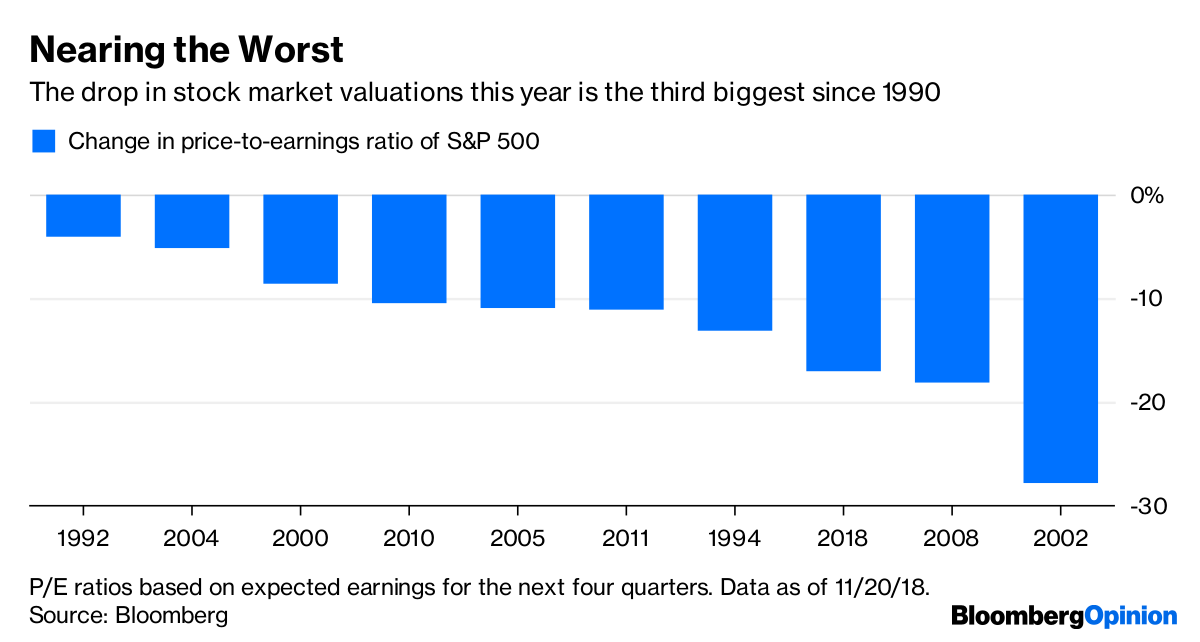
 Source: Bloomberg
Source: Bloomberg
The stock market is no longer not just not great — it's downright awful. In fact, after the 550-point plunge in the Dow Jones Industrial Average on Tuesday, 2018's market meltdown, at least in terms of valuations, now ranks among the worst of the past few decades.
The price-to-earnings multiple of the S&P 500 Index, based on the next 12 months of earnings, has fallen 17 percent in 2018. That's the third-biggest drop in valuations since 1991, which is as far back as Bloomberg data goes on that metric. That's only 1 percentage point better than the 18 percent slide in valuations in 2008, during the financial crisis. The worst valuation drop was in 2002, when corporate profits and the economy, but not yet the stock market, were rebounding from the dot-com bust.
The S&P 500 now trades at 15.4 times what those companies are expected to earn per share during the next four quarters, which includes the current one. That's down from 18.7 at the start of the year. It is also the lowest point of Donald Trump's presidency, down 8 percent from Election Day.
Stock prices are still up significantly since Trump was elected president, as is likely the balance of investors' 401(k)s. But as I have argued in the past, what investors are willing to pay for corporate earnings, i.e. the stock market's valuation, is a better indicator of their feelings about the direction of the economy and their opinion about White House policies than where stocks are trading. Rarely have those feelings soured so quickly, most likely driven by a growing trade war, a likely-not-unrelated slowdown in global growth, and rising interest rates and inflation.

 (Source: Bloomberg)
(Source: Bloomberg) 

